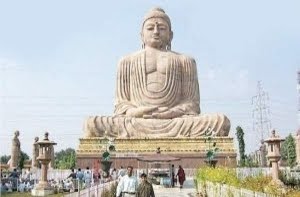Zen teacher Baizhang's advice on verbal teaching
From 'The Extensive Record of Baizhang'
夫語須辨緇素。須識總別語。須識了義不了義教語。
In speaking, one should discern between black and white1 . One should know to speak generally and to speak particularly. One should know to speak the teaching of complete-meaning and to speak the teaching of incomplete-meaning.
- The term (緇素 zi su) translated as black and white here refers to the colour of robes worn by Buddhists. So black means the black-robed monks, while white means the white-robed lay people still engaged in worldly affairs.
.
了義教辨清。不了義教辨濁。說穢法邊垢揀凡。說清法邊垢揀聖。
The teaching of complete-meaning discerns purity. The teaching of incomplete-meaning discerns impurity. The tainted side of the impure dharma is spoken to cull the mundane. The tainted side of the pure dharma is spoken to cull the holy.
.
從九部教說向前。眾生無眼。須人雕琢。若於聾俗人前說。直須教渠出家持戒。修禪學惠。若是過量俗人。亦不得向佗恁麼說。如維摩詰傅大士等類。
Before they are exposed to the sayings of the nine divisions of [Buddhist] teaching, sentient beings have no eyes1 , thus they require someone to sculpt/educate them. Should one speak to lay/worldly people who are deaf2 , they should just be taught to renunciate [to become a monk], to observe precepts, to practise meditation and to learn wisdom. If it is to lay/worldly people who are beyond measure, like that of Vimalakirti or Mahasattva Fu, such things should not be spoken to them.
- People who have no eyes do not have the right view.
- Lay/worldly people who are deaf refers to lay Buddhists who are ignorant of Buddha’s teaching.
.
若於沙門前說。佗沙門已受白四羯磨訖。具足全是戒定慧力。更向佗恁麼說。名非時語。說不應時。亦名綺語。若是沙門。須說淨法邊垢。須說離有無等法。離一切修證。亦離於離。
If it is to sramanas1 who have already gone through the jnapticaturtha-karman2 and are thus filled full with the power of precepts, meditative-concentration and wisdom, to speak to them of such things is also called inappropriate speech. Speaking inappropriately is idle speech. One should instead speak to them the tainted side of the pure dharma. One should tell them to detach from the various dharmas of existence and non-existence, to detach from all practice-verification, and to also detach from detachment itself.
- In Chinese, sramana typically refers to Buddhist monk.
- Jnapticaturtha-karman refers to the procedure used to receive the Sangha’s consent at its meeting. This is the monastic practice of requesting the whole community’s agreement on certain issues, such as confession or ordination, by first making an announcement and then passing a motion three times. In the text here, it means the sramanas have obtained the Sangha's consent for ordination.
.
若於沙門中。剝除習染沙門。除貪瞋病不去。亦名聾俗。亦須教渠修禪學惠。
While in sramana-hood, trying to strip away his habitual stains, should the sramana be unable to rid himself of the disease of greed and aversion, he is also to be called a deaf worldly person. He is also to be instructed in meditation practice and wisdom study.
.
若是二乘僧。佗歇貪瞋病去盡。依在無貪將為是。今無色界。是障佛光明。是出佛身血。亦須教渠修禪學惠。
[Then] there are monks of the two vehicles who rest in the end of the disease of greed and aversion, abiding dependently on the belief that no-greed is correct. This is now the formless realm which obstructs the illumination of Buddha’s light and which sheds the blood of Buddha’s body. Such monks are also to be instructed in meditation practice and wisdom study.
[link] [comments]
from Buddhism https://ift.tt/2Rj1qp3

Post a Comment